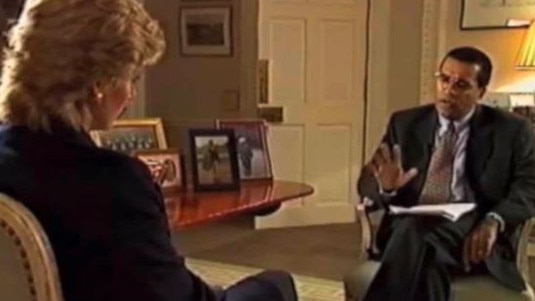Lies, deceit and fabrication: a cover-up unearthed
Martin Bashir was deceitful and the BBC was woeful, Lord Dyson’s investigation concluded. Dyson also said in the first paragraph of his report that it was all unnecessary.

Martin Bashir was deceitful and the BBC was woeful, Lord Dyson’s investigation concluded. Dyson also said in the first paragraph of his report that it was all unnecessary.
Diana, Princess of Wales, was already keen on the idea of a television interview in 1995 “even without the intervention of Mr Bashir”, he said.
As it is, Bashir’s interventions and character have been roundly condemned by Dyson while the BBC’s subsequent “cover-up” led it to fall “short of the high standards of integrity and transparency which are its hallmark”.
Dyson said, however, that “the storm clouds started to appear almost immediately”.
The documents
Bashir had commissioned fake bank statements from graphic designer Matt Wiessler that purported to show that payments were being made by an organisation called Penfolds Consultants and News International (parent company at the time of The Times and The Sun) into the accounts of Alan Waller, a former head of security for Earl Spencer, the younger brother of the princess.
The earl said that Bashir showed him the documents and produced other statements a few days later, with “fabricated” information that payments were being made to Patrick Jephson, private secretary to Diana, and Richard Aylard, who was Prince Charles’ private secretary.
Spencer told Dyson that Bashir had shown him the fake statements to “groom me, so that he could then get to Diana for the interview he was always secretly after”.
While Bashir denied having shown bank statements for the two private secretaries, Dyson said, however, that he accepted the evidence of the earl, whom he found to be “a credible and convincing witness”.
“By contrast there were significant parts of Mr Bashir’s account that I reject as incredible, unreliable and, in some cases, dishonest.”
Dyson said that the result of showing the forged documents was that Bashir “deceived and induced him (Spencer) to arrange a meeting with Princess Diana”.
Spencer told Dyson that the forged statements were the “absolute clincher” in introducing Bashir to his sister.
Spencer said that he took contemporaneous notes of a meeting at which Bashir made “highly improbable” claims. He added that he felt he “was listening to a man who was not telling the truth ... he was overexcited but also shifty”.
First BBC investigation
When Wiessler saw the Panorama interview he immediately made the connection with the statements that he had been commissioned to create. He contacted the BBC because he was “concerned that he might have played a role in obtaining the interview by deception”.
Tim Gardam, a BBC news executive, interviewed Bashir who told him that he had faked documents but “crucially he told them that he had not shown them to anyone”.
Dyson said Gardam had not considered that Bashir had secured the interview by showing the documents to Spencer.
More questions
After The Mail on Sunday began investigating how Bashir secured the interview in 1996, the reporter admitted in March — after lying three times previously — that he had shown the fake statements to Spencer.
After interviewing Bashir, two BBC executives, Tim Suter and Richard Peel, concluded that his “dealings with Princess Diana in securing the interview were absolutely straight and fair” although some material “in early preparation of the program” was a breach of its “straight dealing” guidelines.
Dyson said the conclusion was not justified and was based in large part on the uncorroborated assertions of Bashir. He said that the error was “compounded by their failure to approach Earl Spencer”.
‘Big mistake’
With newspapers continuing to cast doubt on the stated chain of events, Lord Hall of Birkenhead, who was director of news, arranged to meet Bashir with Gardam’s successor, Anne Sloman. Even though Bashir was “unable or unwilling” to give a “credible explanation” the two BBC executives “accepted the account that Mr Bashir gave them as truthful”.
Dyson said that their investigation was “woefully ineffective” with the failure to interview Spencer a “big mistake”.
BBC cover-up
When reporters began questioning the BBC in 1996 about whether Bashir had used documents to entice the princess and her brother, the corporation declined to confirm facts it already knew were “incontestable”. Dyson heard from a former BBC publicity officer that the corporation was briefing journalists that “stories about fake bank statements were being leaked by jealous colleagues”.
He said that he discussed the “cover-up question” with several witnesses. One said that BBC management “deliberately developed a false narrative to divert attention from the fact that its much-lauded interview with Princess Diana had been obtained at best by dubious methods”.
Dyson said he had not been “persuaded by the attempts that have been made in this investigation to justify the evasive responses that were given to the press”. There had been “no good reason” not to mention its own internal investigations into Bashir.
“By failing to do so, the BBC fell far short of the high standards of integrity and transparency which are its hallmark,” he said.
The Times


